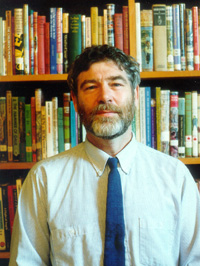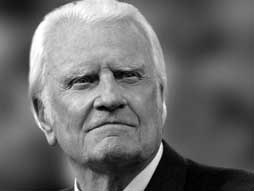Michael D. O’Brien, the Ottawa-born Roman Catholic author and painter, has just had Elijah in Jerusalem, his long-awaited sequel to Father Elijah: An Apocalypse, published by San Francisco’s Ignatius Press, one of the largest American publishers of Catholic books, which was founded by Father Joseph Fessio, a Jesuit, in 1978.
He has worked as a professional artist since 1970 when he had his first one-man exhibit at a major gallery in Ottawa. Since 1976, O’Brien has painted religious imagery exclusively.
When one says Elijah in Jerusalem is the long-awaited to Father Elijah: An Apocalypse, they should perhaps qualify that by making it clear long awaited by readers. Not necessarily O’Brien, who told Joan Frawley Desmond, senior editor of the National Catholic Register in an Oct. 15 interview, that he had not originally intended to write a sequel to Father Elijah: An Apocalypse, published in 1996:
“No, I didn’t,” O’Brien told Frawley, in response to her question asking if he had intended from the beginning almost 20 years ago to write a sequel? “Though the idea of a sequel was often suggested to me by readers, I rejected it for many years,” O’Brien said. “However, during the past few years, powerful images and scenes for the continuing story kept arising in my imagination, begging to be set down on paper. So I prayed and waited. Then came a moment when it was clear that I should write the book – and that the time was now.”
The father of six children, O’Brien, and his wife, Sheila, live in the village of Combermere in eastern Ontario’s scenic, historic, and very rural, Madawaska Valley, about 125 miles west of Ottawa.
I have known about O’Brien, who was briefly both an agnostic and an atheist as a young man, and his work since at least the mid-to-late 1990s, around the time Father Elijah: An Apocalypse, was published, but only got around to reading the novel a couple of years ago. It was a true delight from cover-to-cover. A few years earlier, I had read Plague Journal, one of the novels in his apocalyptic and dystopian 1990s’ trilogy, which also includes Strangers and Sojourners and Eclipse of the Sun. Plague Journal is set in the near future, composed of both written and mental notes made by Nathaniel Delaney, who is the editor of a small town newspaper. The story takes place over a five-day period as he flees arrest by a federal government agency during the preliminary stage of the rise of a totalitarian state in North America. Delaney is one of the few voices left in the media who is willing to speak the whole truth about what is happening, and as a result the full force of the government is brought against him.
O’Brien is an original yet orthodox thinker, writing a novel again with themes rooted in a Catholic view of spiritual warfare, the end times and the Second Coming. While it is not quite uncharted Catholic writing territory, eschatological and apocalyptic themes are often more associated with Protestant premillennial dispensationalist evangelical writers, say Tim LaHaye and Jerry B. Jenkins, and their best-selling 16-book Left Behind series.
O’Brien is interested in exploring the battle between good and evil in history, but also through the souls of individuals, and God’s desire for human beings to choose to love him through an act of free will. Father Elijah: An Apocalypse, Notre Dame-educated Chicago Catholic writer Thomas O’Toole has written, “follows not the simplest interpretations that ‘Revelation’ refers solely to John’s own time,” or “it is exclusively a meditation on the end of things,” or even “a map of the Church’s history.” Rather, it is the interpretation ‘favored by most of the Church Fathers … a theological vision of a spiritual landscape’ that combines all three.”
O’Brien himself, in a talk given by him on Sept. 20, 2005 at Saint Patrick’s Basilica in Ottawa, said, “There is always a battle over every soul. Even if our times prove not to be the times toward which St. John’s Revelation is pointing, each of us must go through a kind of small ‘a’ apocalypse. Each of us certainly will be given a capital ‘R’ revelation at the moment of our deaths when we experience our personal judgment, when all that we are, all that we have done or neglected to do will be revealed.
“The Greek word apokalypsis means a revealing or unveiling. During our lives in this world each of us will indeed face the beast, which is the devil, our ancient adversary, the enemy of our individual souls and of mankind as a whole. In some form or other we must learn to personally resist him and to overcome him in Christ. At the same time we must understand that there will come a point in history when all his malice, all his devices, all his rage will be released in a final vicious attack upon the entire Body of Christ. It will be intense; it will be brief. If we find ourselves in the midst of those three and a half years of total persecution, it will not feel so brief. Yet we must always keep in mind that his time is coming to an end; indeed he is already defeated by the sacrifice of Jesus on the Cross and there remains only the final battle through which the Church and the world must pass.
“We are in the final battle, we are in the apocalypse, we are in the book of Revelation, which the Church, beginning with most of the Church Fathers, believes to be a vision of the entire unfolding of salvation history after the Incarnation, culminating in the total victory of Christ over the entire cosmos and its restoration to the Father. The book of Revelation is not a schematic diagram or a flat blueprint or a purely linear timeline. It is a mysterious multidimensional vision which surely contains linear-chronological aspects, but that is not the whole thing. Indeed it is not the main thing.”
O’Brien told Frawley earlier this month: “Satan attempts to mesmerize, like a serpent paralyzing its victim with fear before devouring it. The many fronts of evil are components in the vast and complex war between good and evil the war that will last until the end of time. As the forces of evil, visible and invisible, appear to spread and grow ever stronger, we who follow Jesus must keep before the eyes of our hearts the ultimate truth of his coming victory. A healthy balance is needed in our pondering of ‘end times’ questions. We should remain prayerfully alert, but we should never allow ourselves to become obsessively over-focused on the darkness. Again, the eyes of the serpent can delude us into discouragement and even despair.”
In the Protestant premillennial dispensationalist interpretation of Bible prophecy, which posits a pretribulation secret Rapture – there is a belief that Christians will be taken up from earth in a sudden, silent removal of true believers by God prior to a time of tribulation and the Second Coming. For this belief, pre-tribbers rely heavily on Saint Paul and 1 Thessalonians: “For the Lord himself will descend from heaven with a cry of command, with the archangel’s call, and with the sound of the trumpet of God. And the dead in Christ will rise first; then we who are alive, who are left, shall be caught up together with them in the clouds to meet the Lord in the air; and so we shall always be with the Lord.”
That, to be clear, is not a Catholic reading, nor would it be O’Brien’s reading, of 1 Thessalonians or Catholic theology, as the passage describes a very loud and public event, not a secret Rapture. We do, as does O’Brien, however, believe in a future Antichrist, and a coming trial and time of apostasy before the Second Coming.
While some of the Apostolic Fathers of the early church, including Papias, Justin Martyr, Irenaeus, Tertullian, Hippolytus, Methodius, Commodianus and Lactanitus – were premillennialists who believed that Christ’s Second Coming would lead to a visible, earthly reign – the pretribulational Rapture espoused by the Protestant premillennial dispensationalist end times writers is premised on the notion that Christ sought to establish a material and earthly kingdom, but the Jews rejected him, so the Church by necessity is a parenthetical insert into history, created as a result of Jews rejecting Christ, resulting in the existence of two people of God: the Jews, the “earthly” people, and the Christians, the “heavenly” people. This is all alien to both Catholic theology and even the premillennialist views of some of the early Apostolic Fathers.
The premillennial dispensationalism on display in recent years is of a much more recent vintage and is for the most part the creation of John Nelson Darby, an Anglo-Irish curate with of the Anglican Church of Ireland, who would eventually leave that church and in the early 1830s with a small group of men form what would come to be known as the Plymouth Brethren. It was Darby who postulated the secret Rapture and much of what premillennial dispensationalism today teaches about 190 years ago.
Elijah in Jerusalem, published earlier this month, is the continuing story of Father Elijah, formerly David Schäfer, a convert from Judaism and survivor of the Holocaust, who has for nearly two decades been a Carmelite friar at a monastery on Mount Carmel, the mountain of the prophet Elijah, overlooking the Bay of Haifa in Israel.
In the earlier novel, Father Elijah: An Apocalypse, Father (later Bishop) Elijah Schäfer confronted the president of the European Union, a man rising toward global control as president of a soon-to- be-realized world government – a man who displays certain anti-Christ-like qualities – and calls him to repentance as he attempts to sow the seeds to transform the heart of this “Man of Sin” on a secret papal mission that will take him from Israel to Vatican City and Rome, and to other cities in Italy, Poland and Turkey.
In Elijah in Jerusalem, Bishop Elijah Schäfer, appointed by the Pope in pectore as the titular bishop of the ancient Titular Episcopal See of Panaya Kapulu near Selçuk, in Central Aegean Turkey, about 200 miles from Constantinople in western Asia Minor, near Ephesus, and travelling incognito, accompanied by his fellow friar, Brother Enoch, enter Jerusalem just as the president arrives in the city to inaugurate a new stage of his rise to power. They hope to unmask him as the Antichrist prophesied by scripture and to warn the world of the imminent spiritual danger to mankind.
As the story unfolds in Jerusalem, people meet the secretly episcopally-ordained Bishop Elijah Schäfer, and in the process their souls are revealed and tested, bringing about change for good or for evil.
You can also follow me on Twitter at: https://twitter.com/jwbarker22








